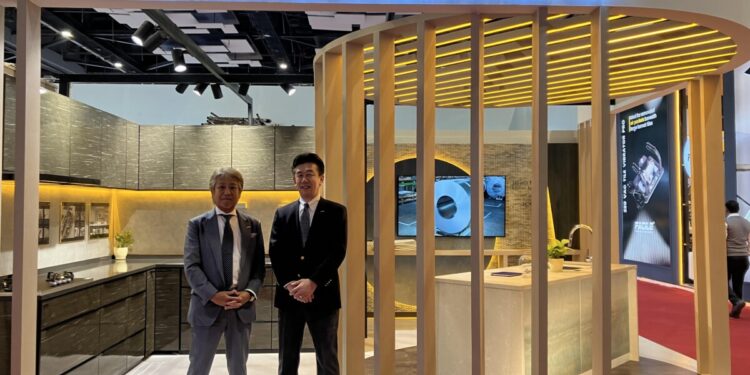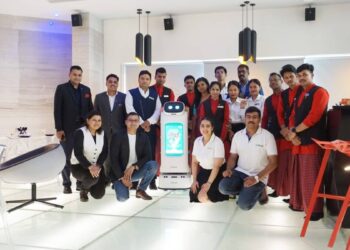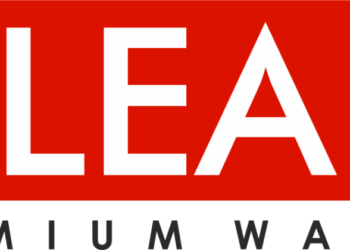-KH News Desk (cbedit@imaws.org)
New Delhi, December 22, 2023 – Takara standard’s potential entry into the Indian market, still under consideration, could work well for the company as it seeks to expand its business overseas and meet the needs of customers in new markets. The company’s proprietary enameled “HORO” built-in kitchens are designed to bring additional comfort to the lives of people in India, where rapid changes in lifestyles have prevailed in recent years. The high-quality enamel used in these kitchen systems has a glassy surface that can be easily cleaned with a quick wipe, making it ideal for Indian consumers whose cooking requires a lot of oil. Additionally, the steel base of the products helps eliminate the risk of termite damage and corrosion due to moisture.
Takara standard is considering this move as part of its goal to boost its overseas sales to 10 billion JPY by FY 2030 from approximately 1 billion JPY in FY 2022. The company’s debut at ACETECH New Delhi is a significant step towards this goal, there it will showcase its unique enameled built-in kitchens and demonstrate their durability and clean-ability. This will be the first time for Takara standard to showcase its products in India. The company currently does not have any distribution of its products in India. At the Takara standard booth, the company plans to exhibit two flagship models of the world’s only enameled system kitchen. To gauge the response of the local Indian market to the company’s unique enamel system kitchens, which are original and proprietary products, Takara standard made its debut at the ‘ACETECH New Delhi’ exhibition.
The company’s commitment to environmentally friendly practices, such as using easily recyclable materials and avoiding adhesives in assembly, will contribute to India’s efforts towards sustainable development.
Takara standard was founded in 1912 in Japan as an enamel cast ironware manufacturer. In 1967, it pioneered the world’s first enamel system kitchen, becoming a leading residential equipment manufacturer, boasting the top kitchen sales in Japan. In 2015, it commenced full-scale international expansion, achieving steady sales growth primarily in East Asia, including China, Vietnam, and Taiwan.
- Takara standard’s HORO material:
“HORO” is a material that combines the strength of iron with the beauty of glass. Takara standard developed this proprietary HORO material, which overcomes the breakage of glass, over many years. Takara standard’s “High-Quality HORO” showcases the robustness of iron, providing resilience against impacts, while the glass layer acts as a barrier against dirt and moisture. The durability of the enamel surface makes it distinctly different from ordinary enamel pots or other materials.
Until recently, HORO’s surface had a glossy look, however, new products combine enamel with a matt finish. This means Takara can provide a variety of surface design products.
- 10 points that demonstrate the strength of Takara standard’s HORO:
- Can quickly wipe up water, easy to clean
- Resistant to moisture and mold
- Conveniently magnetic and can be used as a family message board
- Very shock and crack resistant
- Thanks to the ink jet printing tech, it is available in a wide range of colors and designs
- The material allows permanent maker pen to be wiped off with water, meaning family can leave temporary messages
- Scratch resistant
- Heat resistant, giving peace of mind
- Environmentally friendly (easily recyclable material; no adhesive used in assembly)
- Odor resistant
About Takara standard
Established in 1912, Takara standard manufactures and sells housing equipment, with its mainstay being kitchen and bathroom systems. The company has been pursuing new possibilities of enameled products for the next generation and aiming to create comfortable lifestyles as a leading company in enameling technology, as well as a top manufacturer of housing equipment that meets the increasingly sophisticated, diverse, and complex needs of customers.
Established: May 30, 1912 (111 years in business) / Sales (consolidated): 227.4 billion Japanese yen (1.69 b. dollars, fiscal year ended March 31, 2023. Currency rate as of May 2023) / Employees (consolidated): 6,445 (as of March 11, 2023)







